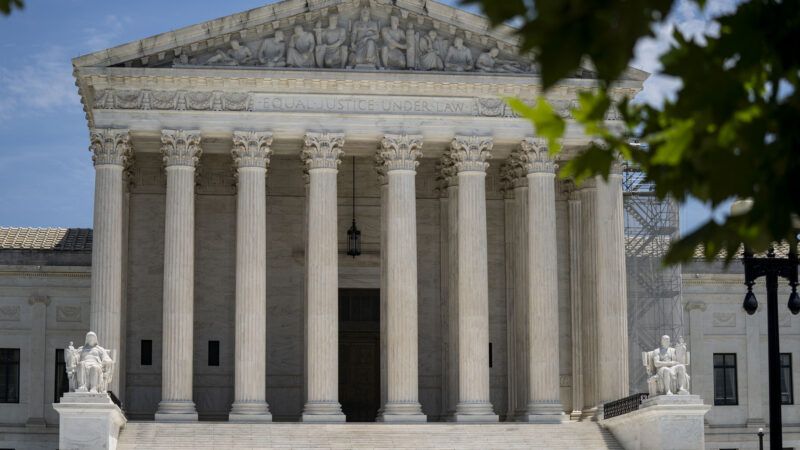SCOTUS Declines To Punish the Feds for Suppressing Social Media Speech
The verdict in Murthy v. Missouri is a big, flashing green light that jawboning may resume.

The Supreme Court will allow federal agencies to resume widespread communication with social media companies for the purposes of suppressing controversial speech. For everyone who was perturbed by the Twitter Files and Facebook Files—which revealed a vast web of government pressure on private actors, called jawboning—this is a regrettable outcome.
The case was Murthy v. Missouri—also known as Missouri v. Biden—and involved a group of individuals who were kicked off Facebook and Twitter. They contended that the platforms took such actions at the behest of the federal government. The Court held 6-3 that the plaintiffs lacked standing to bring such a case and thus the lower court, the 5th Circuit, erred in prohibiting the government from engaging in said communications with social media companies.
Writing for the majority, Associate Justice Amy Coney Barrett explained that the plaintiffs failed to offer up overwhelming evidence that government malfeasance was the cause of their woe.
"The primary weakness in the record of past restrictions is the lack of specific causation findings with respect to any discrete instance of content moderation," she wrote. "And while the record reflects that the Government defendants played a role in at least some of the platforms' moderation choices, the evidence indicates that the platforms had independent incentives to moderate content and often exercised their own judgment. The Fifth Circuit, by attributing every platform decision at least in part to the defendants, glossed over complexities in the evidence."
In his writeup for The Volokh Conspiracy, Case Western Reserve University law professor Jonathan Adler notes other standing issues: The plaintiffs failed to show that a repeat injury was likely, for instance, which is a requirement for injunctive relief.
"The Court emphasizes that it is always more difficult to show standing when the alleged injury 'results from the independent action of some third party not before the court,' in this case the social media companies," writes Adler.
Three of the justices—Samuel Alito, Clarence Thomas, and Neil Gorsuch—saw matters differently. In dissent, Alito expressed the view that the plaintiffs were being held to too high a standard, and that the evidence of government suppression was quite extensive.
"In sum, the officials wielded potent authority," wrote Alito. "Their communications with Facebook were virtual demands. And Facebook's quavering responses to those demands show that it felt a strong need to yield."
Alito's dissent includes a lengthy summary of the dubious actions taken by the federal government to induce social media companies to remove contrarian COVID-19 content; the justice concludes that White House communications staffers badgered Facebook into compliance.
"They browbeat the platform for months and made it clear that if it did not do more to combat what they saw as misinformation, it might be called to account for its shortcomings," wrote Alito. "And as for the supposedly 'fleeting' nature of the numerous references to potential consequences, death threats can be very effective even if they are not delivered every day."
Indeed, in the summer of 2021, President Joe Biden accused Facebook of "killing people" because it had not removed all content that allegedly promoted vaccine hesitancy. Soon thereafter, the company fell in line.
While this case was before the Court, government agencies had dramatically scaled back their communications with social media platforms. It's possible that the Court could rule differently in the future, if civil liberties groups brought a case in which the standing issues could be overcome. But for now, the verdict in Murthy v. Missouri is a big, flashing green light that jawboning may resume. That's a discouraging development for free speech online.


Show Comments (38)